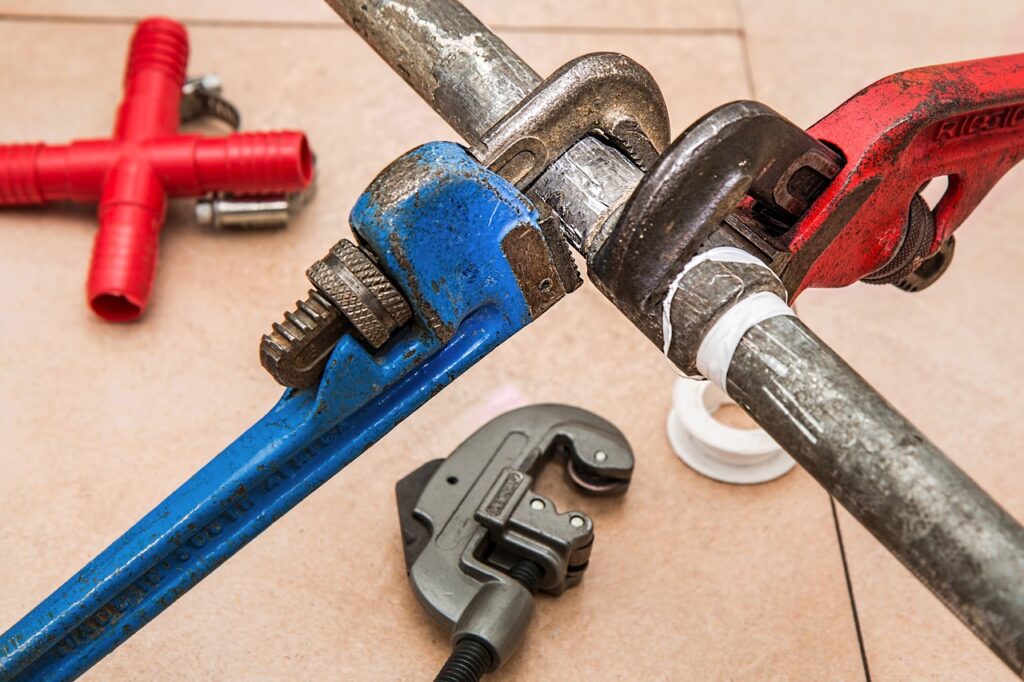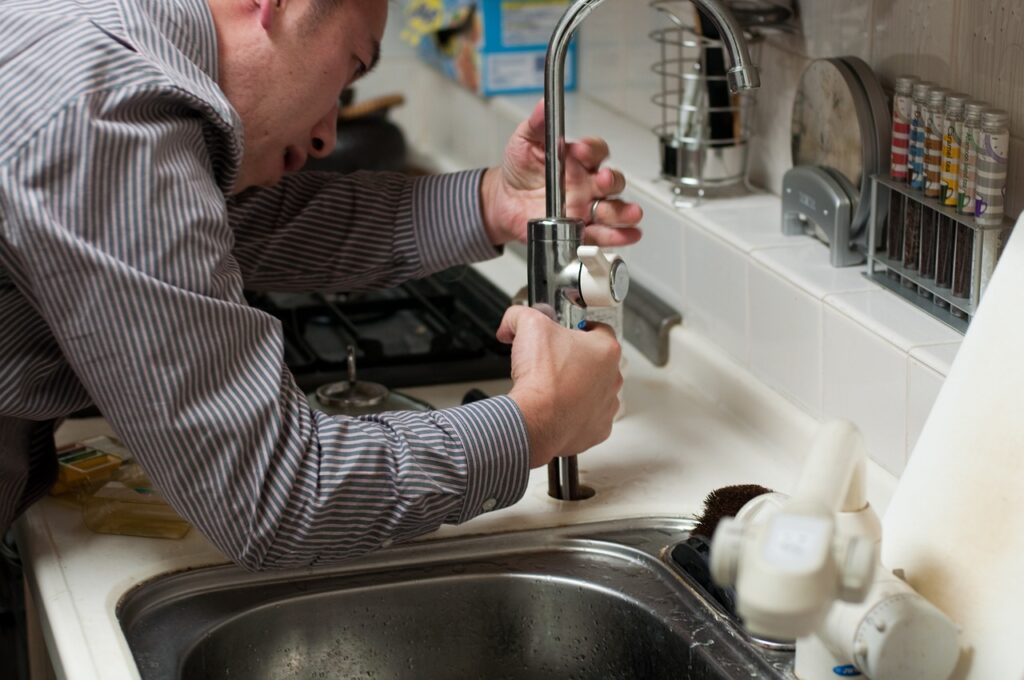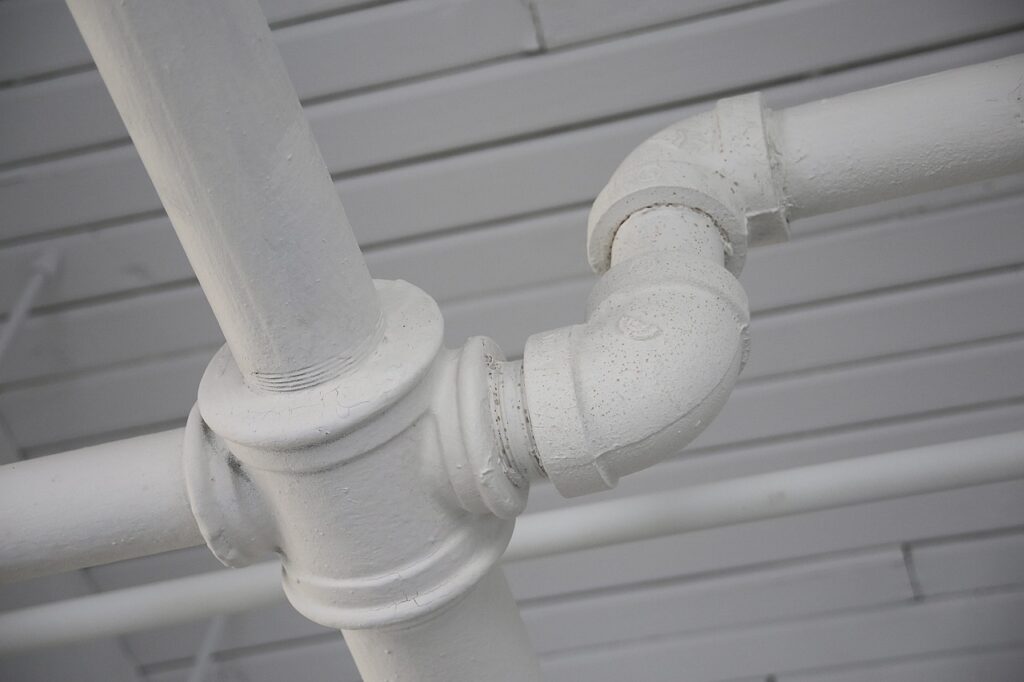Brief Overview of the Plumbing Profession
Plumbing plays a vital role in modern society, providing essential services such as clean water supply and wastewater disposal. Plumbers design, install, and maintain systems for residential, commercial, and industrial settings. From fixing leaky faucets to designing complex water systems for new construction projects, plumbers are crucial to ensuring that our water infrastructure runs smoothly. It’s an important trade career that anyone can get into.
Importance of Plumbers in Maintaining Essential Infrastructure and Sanitation
Plumbers contribute significantly to the health and safety of communities. They maintain the integrity of water and sewer systems, preventing contamination and ensuring proper sanitation. Without skilled plumbers, essential infrastructure would falter, leading to potential public health crises, environmental damage, and compromised quality of life.
Potential for Career Growth and Financial Stability
As a plumber, you can expect a rewarding career with opportunities for advancement and financial stability. The demand for skilled plumbers is on the rise, driven by a growing population and the need to maintain and upgrade aging infrastructure. Plumbers enjoy competitive salaries, job security, and the satisfaction of working in a profession that contributes to the well-being of society.
II. Education and Training Requirements
High School Diploma or GED
To begin a career in plumbing, a high school diploma or GED is typically required. Foundational courses in mathematics, science, and technical subjects can provide useful background knowledge for aspiring plumbers. Additionally, some high schools offer vocational training programs that introduce students to plumbing concepts and hands-on experience.
Vocational/Technical School Programs
Many plumbers choose to attend vocational or technical schools to acquire specialized training in plumbing. These programs typically last one to two years and provide both classroom instruction and hands-on training. Graduates may earn a certificate or diploma, demonstrating their knowledge and skills in the field.

Apprenticeships
Components of a Plumbing Apprenticeship
Plumbing apprenticeships are a popular pathway for individuals looking to enter the profession. They combine on-the-job training with classroom instruction, typically lasting four to five years. Apprentices work under the supervision of experienced plumbers, gaining invaluable practical experience while earning a salary. Classroom instruction covers topics such as plumbing codes, blueprint reading, and safety practices.
How to Find and Apply for Apprenticeships
Apprenticeship opportunities can be found through local trade unions, plumbing associations, and government-sponsored job boards. Networking with professional plumbers and attending industry events can also yield leads on available apprenticeships. To apply, candidates usually need to submit an application, pass an aptitude test, and complete an interview process.
Certification and Licensing Requirements
State-Specific Requirements
Licensing requirements for plumbers vary by state, with some requiring a certain level of work experience and/or successful completion of an examination. It’s essential to research your state’s specific requirements to ensure compliance and maintain your license.
Importance of Staying Up-to-Date on Industry Regulations and Best Practices
As a licensed plumber, it’s crucial to stay current with industry regulations and best practices. Regularly attending training courses, workshops, and industry conferences can help you stay informed of changes in codes, new technologies, and emerging trends. Staying up-to-date on industry developments not only keeps you competitive but also ensures the safety and satisfaction of your clients.
III. Essential Skills and Qualities of a Successful Plumber
Technical and Mechanical Aptitude
A strong foundation in technical and mechanical knowledge is vital for a successful plumber. They must understand complex plumbing systems, as well as how to use and maintain various tools and equipment. This aptitude enables plumbers to diagnose issues, design solutions, and carry out repairs efficiently and effectively.
Problem-Solving and Critical Thinking
Plumbing often involves solving complex problems and making informed decisions. Plumbers must be able to think critically, assess situations, and develop appropriate solutions. This skill is essential for diagnosing issues, designing systems, and ensuring proper installation and maintenance.
Communication and Customer Service Skills
Excellent communication skills are crucial in the plumbing profession. Plumbers must be able to explain complex technical concepts to clients in a clear and concise manner, as well as listen carefully to their concerns and needs. Strong customer service skills help build trust, foster positive relationships, and ensure client satisfaction.
Physical Fitness and Stamina
Plumbing can be physically demanding, requiring strength, stamina, and dexterity. Plumbers often work in tight spaces, lift heavy materials, and spend long hours on their feet. Maintaining physical fitness enables them to perform their tasks efficiently and safely, minimizing the risk of injury.
Attention to Detail and Safety
Attention to detail is paramount in the plumbing profession. Plumbers must follow intricate plans, adhere to strict safety guidelines, and ensure accurate measurements and installations. This meticulousness helps prevent costly errors, ensures the safety of both the plumber and clients, and contributes to the overall success of a project.

IV. Career Advancement Opportunities
Master Plumber Certification
Obtaining a master plumber certification is a significant step in advancing your career. This certification signifies a high level of expertise, allowing you to take on more complex projects and command higher wages. Requirements for master plumber certification vary by state but typically involve several years of work experience and successful completion of an examination.
Specializations within the Plumbing Industry
Commercial or Residential Plumbing
Plumbers can choose to specialize in either commercial or residential plumbing, focusing on the specific needs and challenges of each sector. Commercial plumbers typically work on larger-scale projects in businesses and public buildings, while residential plumbers cater to homeowners and smaller-scale projects. Residential plumbers may also partner with local construction companies for new construction projects.
Pipefitting and Steamfitting
Another specialization within the plumbing industry is pipefitting and steamfitting. These professionals design, install, and maintain high-pressure piping systems for various industries, such as manufacturing, power generation, and heating and cooling. This specialization requires additional training and knowledge of specific codes and regulations.
Green Plumbing and Sustainable Technologies
With growing environmental concerns, many plumbers are specializing in green plumbing and sustainable technologies. This involves implementing water and energy-saving solutions, such as rainwater harvesting systems, solar water heaters, and low-flow fixtures. Pursuing this specialization can provide a competitive edge and align with clients’ values.
Entrepreneurship and Starting Your Own Plumbing Business
Many experienced plumbers choose to start their own businesses, offering a range of services to residential and commercial clients. This entrepreneurial path allows for greater autonomy, flexibility, and earning potential. It’s essential to develop solid business skills, such as marketing, financial management, and customer service, to succeed in this venture.
Continuing Education and Professional Development Resources
Staying current in the plumbing industry is crucial for career advancement. Many professional associations, trade schools, and online platforms offer continuing education courses, workshops, and seminars covering industry trends, new technologies, and regulatory updates. Pursuing ongoing professional development helps you stay competitive, expand your skillset, and enhance your career prospects.

Recap of the Steps to Become a Plumber
Becoming a plumber involves obtaining a high school diploma or GED, pursuing vocational or technical training, and completing an apprenticeship. It’s essential to acquire necessary certifications and licenses, in accordance with state-specific requirements. Additionally, developing essential skills and qualities, such as technical aptitude, problem-solving, and communication, is crucial for success in the profession.
A career in plumbing offers numerous opportunities for growth and financial stability. With the increasing demand for skilled professionals in the field, now is an excellent time to get started on this rewarding path. We encourage you to explore the various educational and training resources available to help you achieve your career goals.
As in any profession, lifelong learning is key to success in the plumbing industry. Staying current on industry developments, regulations, and best practices is crucial for maintaining your competitive edge and ensuring the satisfaction of your clients. Make a commitment to ongoing professional development, and explore the various resources available to help you stay informed and up-to-date.
Ready To Pursue Your Career in Plumbing?
Check out our Plumbing Schools‘ page to get an idea of what type of schools and programs are available.
